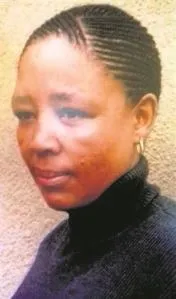
During the week of 3 March three women – Elizabeth Koue, Babes Wodumo and Karima Brown – provided us with a glimpse into the economy of public sympathy in South Africa. By that I mean the ways in which public feeling acts as a kind of resource, such that we invest value and meaning in some lives but reserve our responses to others.
In July 2016 Elizabeth Koue was found dead in her lover Johnson Mashigo’s shack. According to her family he was routinely abusive towards her, evident from the protection orders in their possession. Even so, he was acquitted on 19 February 2019 of stabbing her to death. On 3 March her family was reported as having made a formal complaint to the South Gauteng National Prosecuting Authority about the way the prosecutor handled the case. Koue clearly mattered a great deal to her family. But, as a middle-aged woman who lived in a shack, her life was not the glossy, aspirational stuff of which Instagram or twitter followings are made. This made her socially and politically peripheral and ensured that her death left no more than a passing impression on the surface of public opinion.
As a young celebrity Babes Wodumo is more central to public life than Elizabeth Koue. When the Instagram video of Mampintsha’s clear and unambiguous violence towards her started circulating on 4 March it shocked many. His act could not be explained away in terms of that classic abusers’ excuse – a mere little slap blown grossly out of proportion.
Political parties fell over themselves to condemn the assault. By 11am of the same day Vusi Khoza, chairperson of the EFF in KwaZulu-Natal, was championing Wodumo’s cause by laying criminal charges against Mampintsha at the Umlazi Police station. Leader of the Democratic Alliance, Mmusi Maimane, in a quaint display of manly protectionism challenged Mampintsha to three rounds in a boxing ring. Later that same day the Young Women’s Desk of the ANC Women’s League accompanied Wodumo to the Westville police station to report the matter.
But the police were already one step ahead and had opened an inquiry docket even before Wodumo laid charges. Mampintsha was arrested and on Tuesday appeared in court to apply for bail. The police’s rush to be seen performing their duties is in contrast to how they deal with other domestic violence matters.
To provide a particularly egregious example: In 2016 the Western Cape High Court condemned the Kuils River police’s handling of a domestic violence complaint. Uretta Nicholas had been kidnapped, assaulted and raped by her estranged partner Bennie Adams. She had escaped and run to the police for help who, because they would not tell the difference between extreme traumatisation and drunkenness, refused to intervene. When she finally obtained assistance and returned to the house it was to find that Adams had raped and murdered her two-year old son in the interim.
This is far from being the only case illustrating the police’s refusal to act in support of domestic violence complainants. The Civilian Secretariat for Police has also reported that not one of the police stations they monitored between 2016 and March 2018 complied with the Domestic Violence Act.